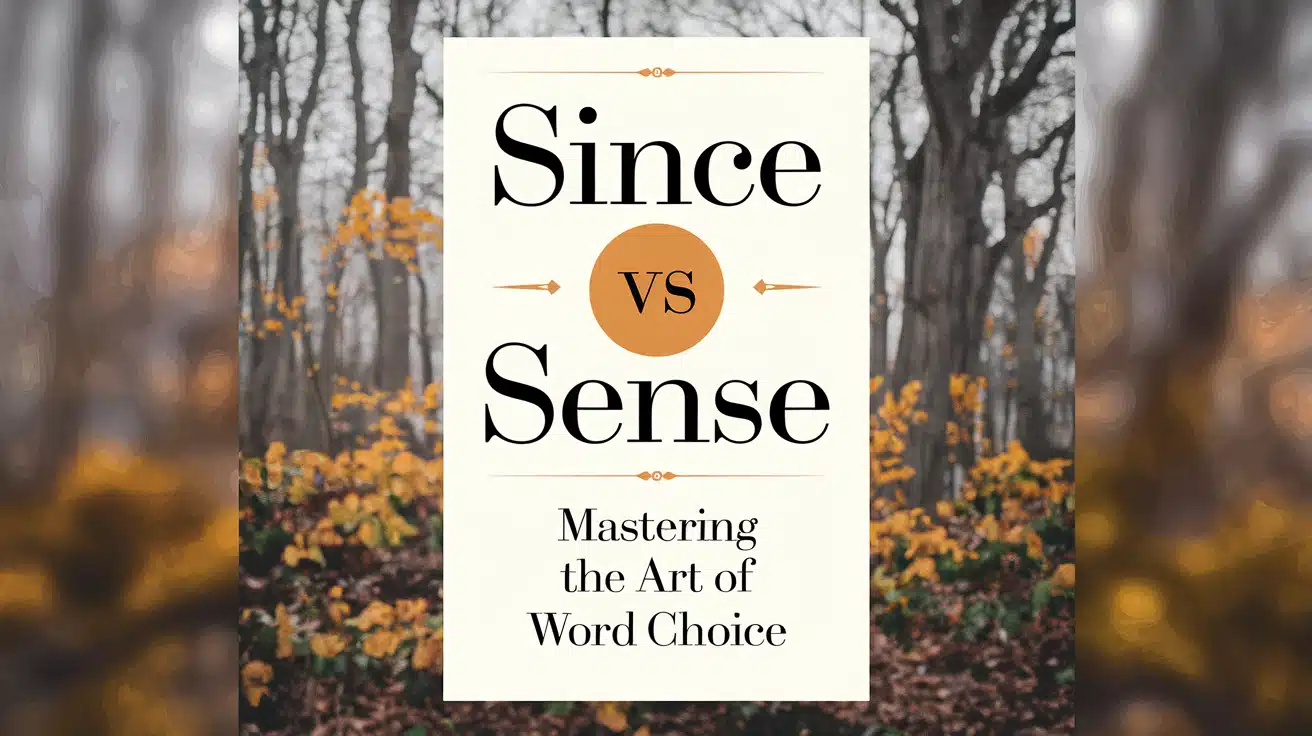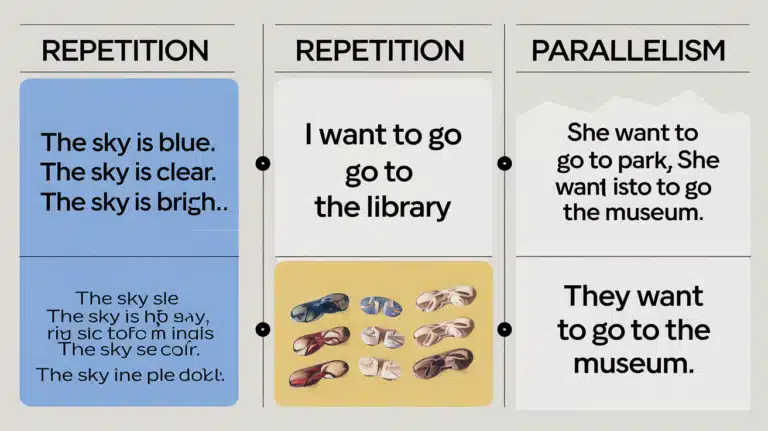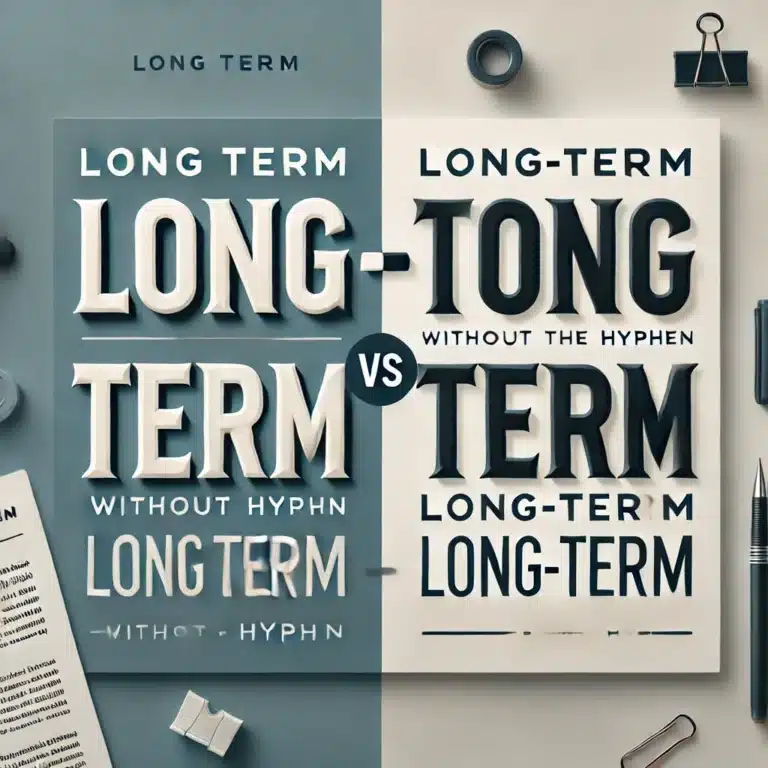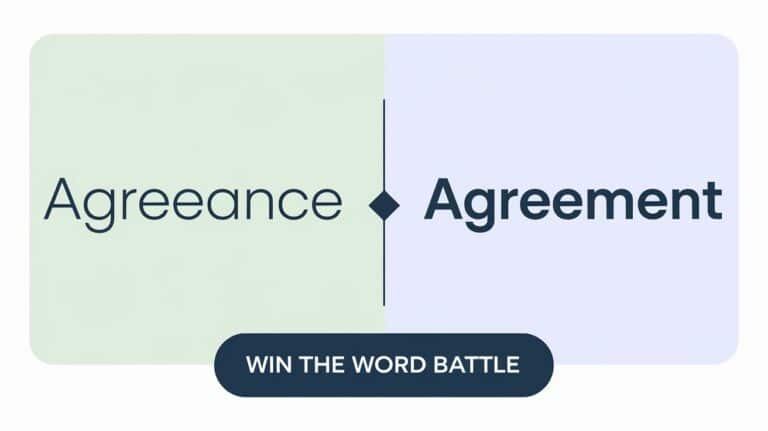Since vs Sense: Mastering the Art of Word Choice
Have you ever found yourself scratching your head, wondering whether to use “since” or”sense” in a sentence? You’re not alone. This common problem has tripped up writers, students, and even seasoned professionals for years. Let’s dive into the world of these often-confused words and unravel the mystery of since vs sense.
Etymology and Evolution: The Roots of Confusion
To truly grasp the distinction between “since” vs “sense”, we need to dig into their origins.
“Since” traces its roots back to the Old English “siþþan”, meaning “after that”. Over time, it evolved to encompass both temporal and causal meanings.
“Sense”, on the other hand, comes from the Latin “sensus”, referring to perception or feeling. Its journey through language history has led to a rich tapestry of meanings, from physical sensations to logical understanding.
This divergent evolution is at the heart of our modern-day usage confusion.
You can Also Read : Skill Set, Skillset, or Skill-Set: Mastering the Art of Professional Language
Defining “Since”: More Than Just Time
When we talk about the usage of since, we’re dealing with a versatile word that wears many hats:
- As a conjunction: “Since you’re here, let’s chat.”
- As a preposition: “I’ve been waiting since noon.”
- As an adverb: “I haven’t seen her since.”
But here’s where it gets interesting. While “since” is often associated with time, it’s also used to indicate reason or cause. This dual role can lead to some head-scratching moments.
“Since the weather’s nice, let’s have a picnic.”
In this sentence, “since” isn’t about time at all – it’s giving us a reason for the picnic suggestion.
Defining “Sense”: Your Internal Compass
Now, let’s turn our attention to “sense”. This word is a chameleon, changing its meaning based on context. But at its core, it’s all about perception and understanding.
As a noun, “sense” can refer to:
- The five physical senses (sight, hearing, touch, taste, smell)
- A feeling or intuition (“I had a sense something was wrong”)
- Meaning or logic (“That doesn’t make sense”)
As a verb, it means to detect or perceive:
“Can you sense the excitement in the air?”
One of the most common uses of “sense” is in the phrase “sense of direction”. This isn’t just about knowing north from south – it’s often used metaphorically to describe someone’s ability to navigate life’s challenges.
Comparative Analysis: “Since” vs “Sense”
Let’s break down the key differences between since vs sense:
| “Since” | “Sense” |
|---|---|
| Relates to time or reason | Relates to perception or understanding |
| Used as conjunction, preposition, adverb | Used as noun or verb |
| Often starts clauses | Often used in phrases like “make sense” |
Understanding these distinctions is crucial for clear communication. Mixing them up can lead to some pretty confusing sentences!
“Since” in Depth: Time Traveler and Reason Giver
The usage of since is all about establishing connections – either in time or logic. Let’s break it down:
- Temporal usage: “I’ve been a vegetarian since 2010.”
- Causal usage: “Since you’re the expert, what do you think?”
In formal writing, it’s generally better to use “because” for causal relationships to avoid ambiguity. But in everyday speech and informal writing, “since” is often used interchangeably with “because”.
“Sense” in Depth: Your Internal Compass
When we talk about “sense”, we’re often referring to our ability to understand or comprehend the world around us. It’s like an internal compass guiding us through life’s complexities.
Consider these examples:
- “I have a good sense of humor.”
- “That decision doesn’t make sense to me.”
- “She has a keen sense of style.”
In each case, “sense” is about perception, understanding, or judgment.
Practical Application: Making Sense of It All
Now that we’ve dissected these words, let’s put them into practice. Here’s a quick exercise:
- _ I started this course, my writing has improved. (Since/Sense)
- Do you have a _ of where we’re going? (Since/Sense)
- It doesn’t make _ to leave now. (Since/Sense)
- _ you asked, I’ll tell you the truth. (Since/Sense)
(Answers: 1. Since, 2. Sense, 3. Sense, 4. Since)
Common Pitfalls and How to Avoid Them
Even seasoned writers can stumble when it comes to “since” vs “sense”. Here are some common traps to watch out for:
- Using “since” when you mean “because” in formal writing
- Confusing “sense” with “cents” (as in money)
- Overusing either word, leading to repetitive writing
The key is to always consider context and meaning. When in doubt, try substituting another word to see if it fits better.
Synonyms and Alternatives: Expanding Your Vocabulary
Sometimes, the best way to avoid confusion is to use a different word entirely. Here are some alternatives:
For “since”:
- Temporal: “from”, “after”, “starting from”
- Causal: “because”, “as”, “given that”
For “sense”:
- Noun: “perception”, “feeling”, “understanding”
- Verb: “detect”, “perceive”, “notice”
“Since” and “Sense” Across the Globe
Interestingly, the usage of these words can vary across different English-speaking regions. For example, British English tends to use “since” more frequently in its causal sense than American English does.
Impact on Writing Style: Crafting Clear Communication
The choice between “since” and “sense” can significantly impact your writing style. Using “since” effectively can create smooth transitions in your narrative, while “sense” can add depth to descriptions and explanations.
Consider this sentence: “Since the dawn of time, humans have tried to make sense of the world around them.”
Here, both words work together to create a powerful statement about human nature and our quest for understanding.
Digital Age Influence: Texting and Autocorrect Challenges
In the age of smartphones and autocorrect, the “since vs sense” confusion has taken on new dimensions. How many times have you typed “sense” only to have it autocorrected to “since” (or vice versa)?
This digital interference can sometimes reinforce incorrect usage, making it even more important to understand the distinction between these words.
Language Evolution and Future Trends
Language is always evolving, and the usage of “since” and “sense” is no exception. While their core meanings remain stable, we’re seeing some interesting trends:
- Increased use of “since” in casual writing to mean “because”
- New idiomatic expressions involving “sense”, like “no sense crying over spilled milk”
Who knows? In a few decades, we might be looking at entirely new ways of using these versatile words.
Expert Opinions and Style Guide Recommendations
Most style guides agree on the basic distinctions between “since” and “sense”. However, there’s some debate about the use of “since” to mean “because”.
The Chicago Manual of Style, for instance, accepts this usage, while some more conservative guides still advise against it in formal writing.
Conclusion: Sensible Usage Since Time Immemorial
Mastering the distinction between “since” and “sense” is more than just a grammar exercise – it’s about honing your ability to communicate clearly and effectively. By understanding the nuances of these words, you’re adding powerful tools to your linguistic toolkit.
Remember, language is a living thing, constantly evolving. What matters most is not rigid adherence to rules, but clear, effective communication. So go forth and use your newfound knowledge – it just makes sense!
FAQs
Q: Can “since” ever be used at the end of a sentence?
A: Yes, when used as an adverb. For example: “I haven’t seen her since.”
Q: Is it correct to say “in a sense”?
A: Absolutely! This phrase means “in a way” or “from a certain perspective.”
Q: How can I remember the difference between “since” and “sense”?
A: Think of “since” as related to time (both have an “i”), and “sense” as related to feeling or understanding (both have an “e”).







